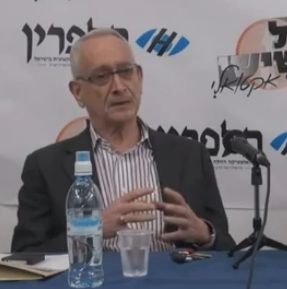
Amos Schocken, Haaretz’s publisher, explains why the paper gave more prominence to the Japanese tsunami than to the Fogel family massacre, which occurred on the same day.
“The role of a newspaper as I understand it, and as Ha’aretz has understood throughout the years, even before I became responsible for the paper, even when my father was there . . . is not to give expression to emotionalism and feelings, but to give readers information about the important things. To set some sort of hierarchy of importance.
“With all due respect for the family at Itamar, when you compare that event, which was very grave – it was not the first time that Palestinians murdered Jews . . . It was a shocking case . . . Among others, there was the case of the father and the son who were killed in a car. These things do occur. And when you compare it in importance to the tsunami in Japan, with all due respect to our identification with the family in Itamar, this is an event that carries much more weight.
“The role of Ha’aretz is also to provide a perspective of how important things are in the world we live in,” he went on. “What is the role of a newspaper, after all? To give the reader some kind of picture of reality that is as faithful to reality as is possible. It is clear that our feelings can be with the victims of the tsunami in Japan and of course can be with the family in Itamar, and of course, it was a shocking murder.
“If you weigh the two events in terms of their true importance, then with all due respect, there is no comparison. With the tsunami in Japan, not only did more people perish there, but it is an event whose importance goes beyond just how many people it occurred to at that moment.”
What does Schocken mean by “due respect” to Haaretz’s “identification with the family in Itamar?”
While the journalism profession demands a degree of detachment from stories, there’s a difference between the how papers handle local and international news.
That’s partly because papers have to own the coverage in their backyard. That’s any paper’s unique product. So it’s fair to ask, for example, How’s the Orlando Sentinel handling the Trayvon Martin case? (Nobody cares how Haaretz is covering that.)
But more importantly, editors have to know and take care of their core constituents — local readers. When Israel was shaken by the brutal killing of three small children and their parents, Haaretz’s response was more befitting an international news aggregator.
If Schocken’s saying his paper’s reporting no differently than the rest of the rest of the Western media, what do I need Haaretz for?
(Image of Schocken via YouTube)


